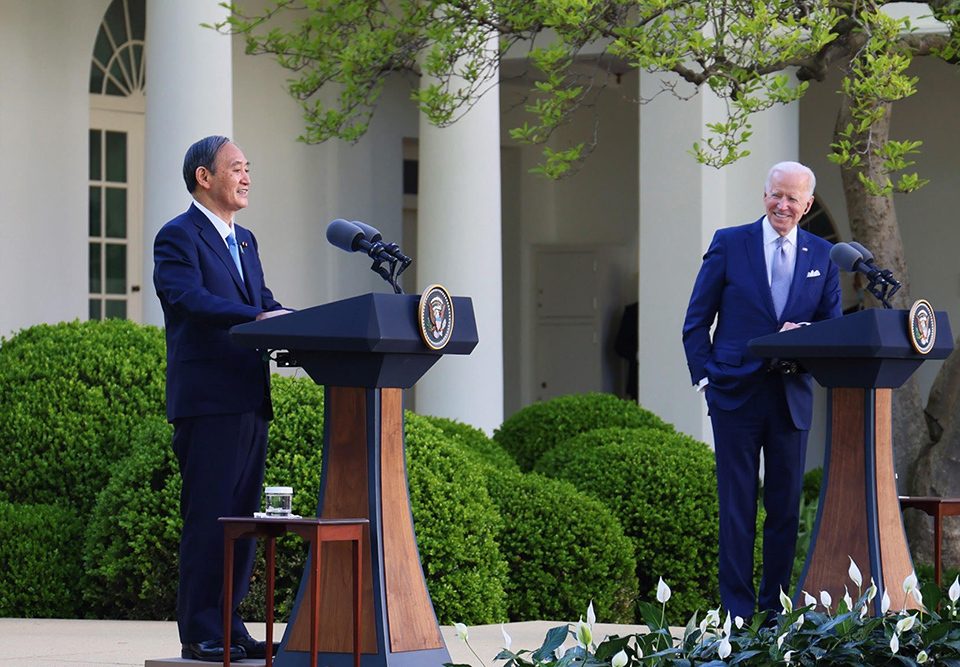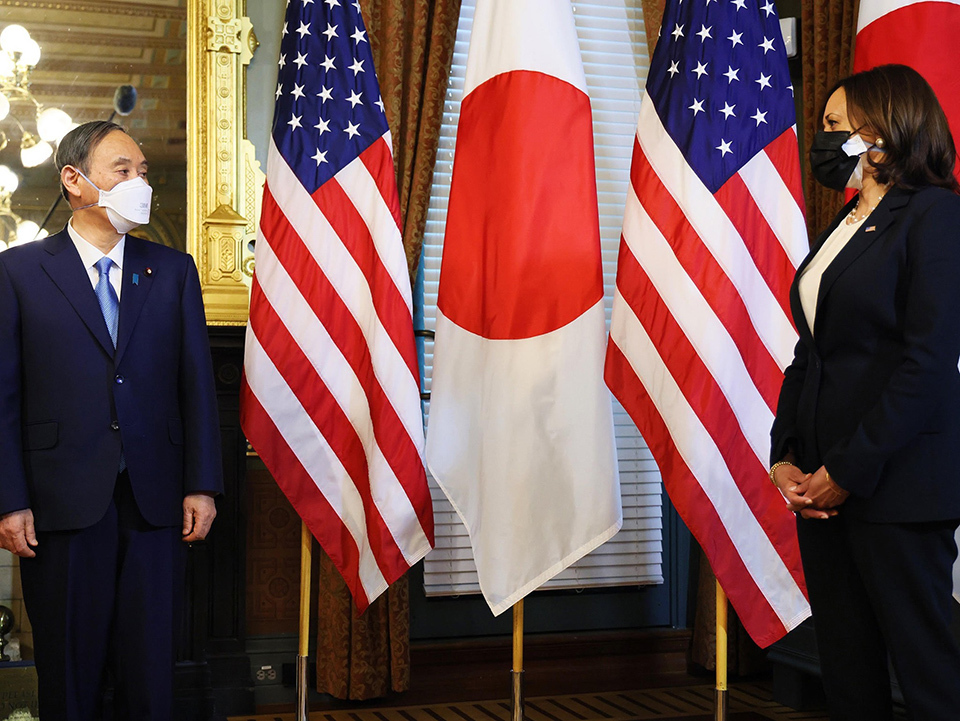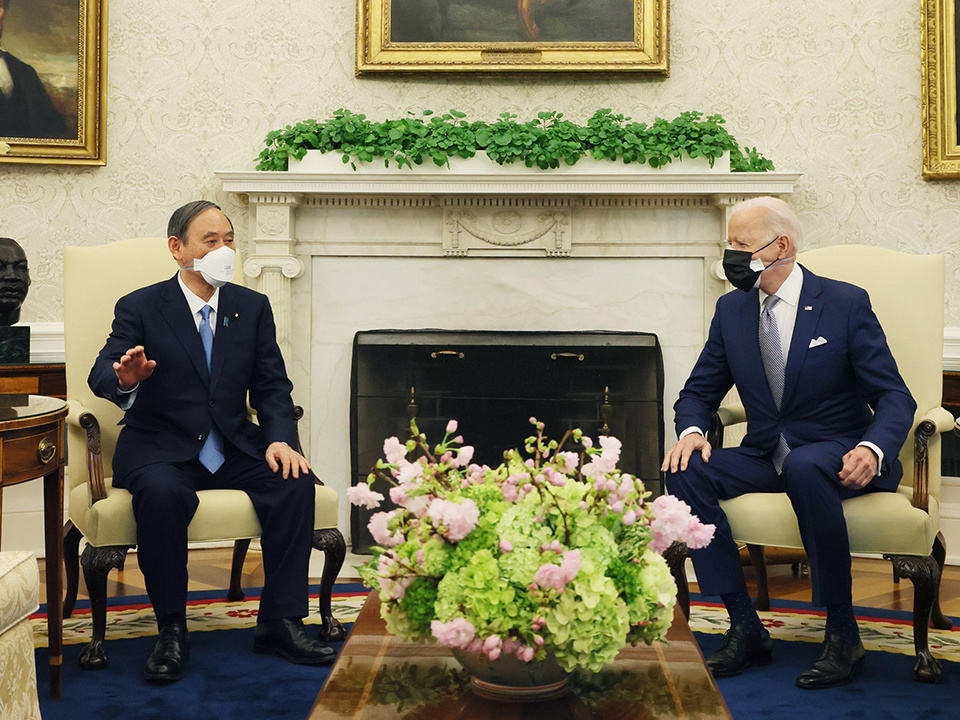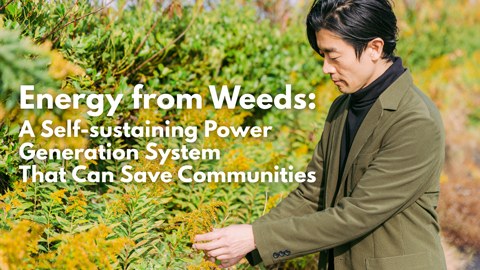Speech by Prime Minister Suga at the Center for Strategic and International Studies (CSIS)

Prime Minister Suga and President Biden held a Japan-U.S. Joint Press Conference after the summit meeting and issued a U.S.-Japan Joint Leaders’ Statement titled “U.S.-Japan Global Partnership for a New Era.”
On April 16, Prime Minister SUGA Yoshihide held a Japan-U.S. Summit Meeting with President Joe Biden of the United States of America. Prime Minister Suga was the first foreign leader to visit the U.S. during President Biden’s presidency; it was their first face-to-face meeting. The two leaders shared the view on strengthening the Japan-U.S. Alliance at the summit meeting. They also confirmed that Japan and the United States will strengthen their unity and cooperation while partnering with like-minded countries toward the realization of a “Free and Open Indo-Pacific.”
On the same day, Prime Minister Suga gave a speech on the basic strategies of Japan’s foreign policy at the CSIS. A transcript excerpt (as interpreted) from the CSIS’s video (https://www.csis.org/events/my-vision-japan-us-alliance) is as follows.
The Indo-Pacific reality
Turning our eyes to the Indo-Pacific where Japan lies, we find a reality where change in the power balance accompanying the rise of China and unilateralism that has become prevailing in the course of responding to the pandemic has led to increased uncertainties. At the same time, the regional security environment has become more severe.
Last month, North Korea again went ahead with the launch of ballistic missiles. We must persistently seek the CVID (Complete, Verifiable, Irreversible, Denuclearization) of all weapons of mass destruction and ballistic missiles of all ranges possessed by North Korea.
Through close partnership with the United States and trilateral collaboration between Japan, the U.S., and the ROK (the Republic of Korea), we will proceed toward full implementation of relevant Security Council resolutions aiming for the denuclearization of North Korea.
In solving the issue of North Korea, it is China who holds the key. That very country is rapidly gaining influence in recent years, politically, economically, and on the military front, while continuing unilateral attempts to change the status quo in the East and South China Seas.
I have no intention whatsoever to concede in matters related to sovereignty or fundamental values, such as democracy, human rights, and the rule of law. Japan’s basic policy on pending issues caused by China is to firmly assert what should be asserted and strongly request China to take specific action.
At the same time, we must work to establish a stable and constructive relationship with China and keep in close partnership with the United States and other like-minded nations. That is my basic philosophy.
The bonds of the Japan-U.S. Alliance
The strengthening of the Japan-U.S. Alliance is needed more than ever in the Indo-Pacific of which Japan is also a part. Our Alliance has never been as rock-solid as today, thanks to efforts made over the years by both sides.
Elevating the Japan-U.S. Alliance to new heights is an important part of my responsibility in steering Japan’s foreign policy.
I look forward to making progress in Japan-U.S. cooperation in such areas as COVID-19 countermeasures, green growth, innovation, and science and technology, as well as in harnessing economic security.
Shaping a post-COVID world order
In terms of the diplomatic strategies of Japan, we promote a strong Japan-U.S. Alliance, but extremely emphasize multilateral approaches at the same time. Through multilateral coordination and collaboration to solve the challenges that the international community is faced with, we will strive to realize such a united world.
As Japan promotes such multilateral approaches, what we always have in mind is not force or coercion but our firm belief that a rules-based free and open order. This is what brings peace and prosperity to the region and the world.
By now, this vision of our country has garnered wide support by the U.S., Australia, India, ASEAN, and Europe, and by the international community.
Japan will proactively implement concrete projects such as maritime-security-related law-enforcement capacity building or provision of support for quality infrastructure, including ports and harbors or power supply networks.
The expansion of a free and fair economic zone that Japan promotes is also part of such efforts. Japan has concluded the Japan-EU EPA, Japan-U.K. EPA, and RCEP, and has consistently served as a flag bearer of free trade.
By the accumulation of these concrete actions, I am determined to strategically promote a free and open Indo-Pacific.
Lastly, in order to prevent the spread of COVID-19, authoritarianism might be more successful than democracy. This kind of thinking is rising recently, and therefore I wish to mention the importance of democracy.
A democratic society is where each and every person can exert their maximum potential, and where freedom and ingenuity and creativity, as well as diversity and fundamental human rights, are respected.
In order to ensure that freedom, fundamental human rights, and the rule of law are protected in all countries and regions, Japan is determined to continue to proactively contribute to international discussions and endeavors.
The top priority of my administration is the serious human rights issue of abduction. We will do our utmost to realize the return of all abductees as soon as possible.
It is my sincere wish that Japan and the U.S., that believe in the resiliency of democracy, will exert strong leadership, and together with like-minded countries I wish to create a future full of hope.
Thank you very much.

Prime Minister Suga received a courtesy call from Vice President Kamala Harris before the Japan-U.S. Summit Meeting.

At the summit meeting, Prime Minister Suga and President Biden discussed a wide range of topics including regional situations, climate change, and economic cooperation.





























